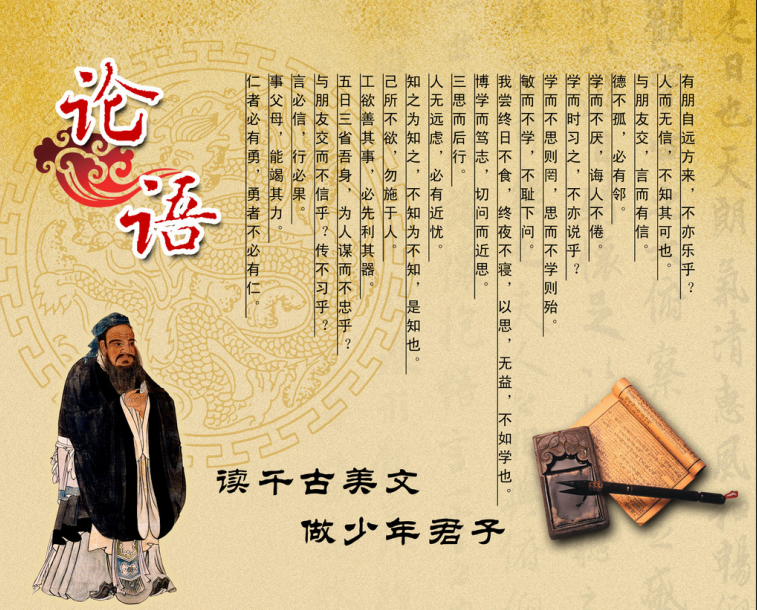The Master said, "Is it not pleasant to learn with a constant perseverance and application?"
子曰:“学而时习之,不亦说乎?
"Is it not delightful to have friends coming from distant quarters?
有朋自远方来,不亦乐乎?
"Is he not a man of complete virtue, who feels no discomposure though men may take no note of him?"
人不知而不愠,不亦君子乎?”
The philosopher Yu said, "They are few who, being filial and fraternal, are fond of offending against their superiors.
有子曰:“其为人也孝弟,而好犯上者,鲜矣;
There have been none, who, not liking to offend against their superiors, have been fond of stirring up confusion."
不好犯上而好作乱者,未之有也。
"The superior man bends his attention to what is radical. That being established, all practical courses naturally grow up.
君子务本,本立而道生。

Filial piety and fraternal submission, are they not the root of all benevolent actions?"
孝弟也者,其为仁之本与!”
The Master said, "Fine words and an insinuating appearance are seldom associated with true virtue."
子曰:“巧言令色,鲜矣仁!”
The philosopher Tsang said, "I daily examine myself on three points: whether, in transacting business for others, I may have been not faithful;
曾子曰:“吾日三省吾身:为人谋而不忠乎?
whether, in intercourse with friends, I may have been not sincere; whether I may have not mastered and practiced the instructions of my teacher."
与朋友交而不信乎?传不习乎?”
The Master said, "To rule a country of a thousand chariots, there must be reverent attention to business, and sincerity;
子曰:“道千乘之国,敬事而信,
economy in expenditure, and love for men; and the employment of the people at the proper seasons."
节用而爱人,使民以时。”


